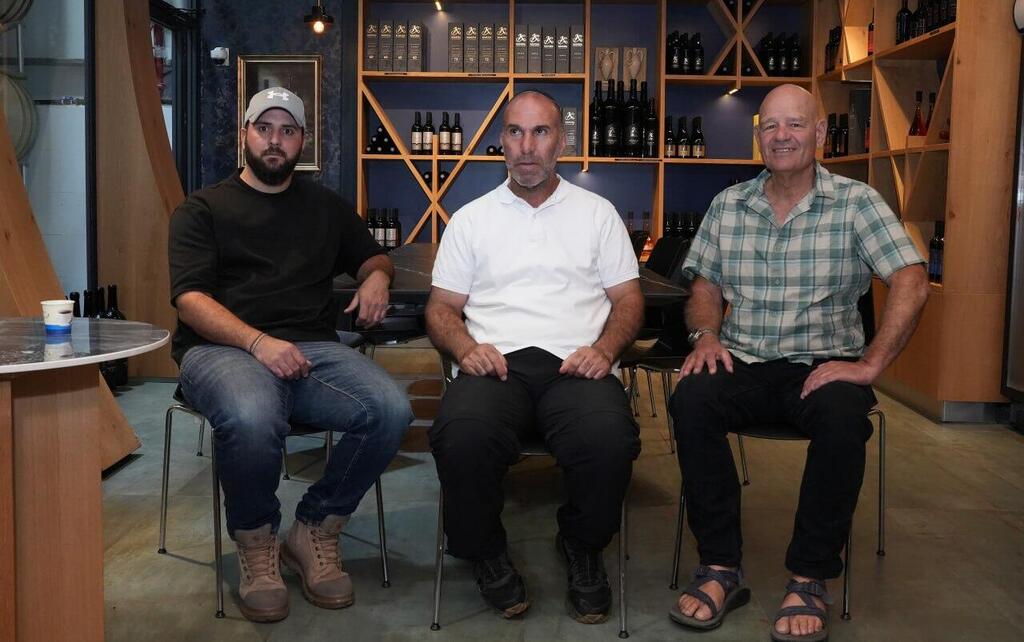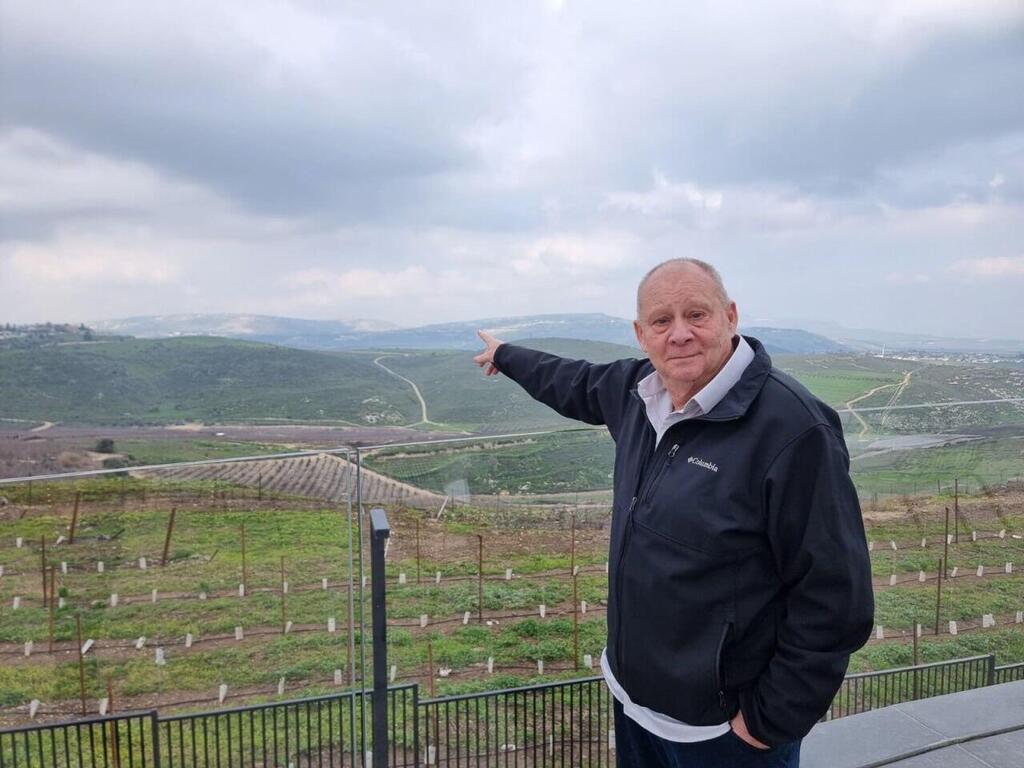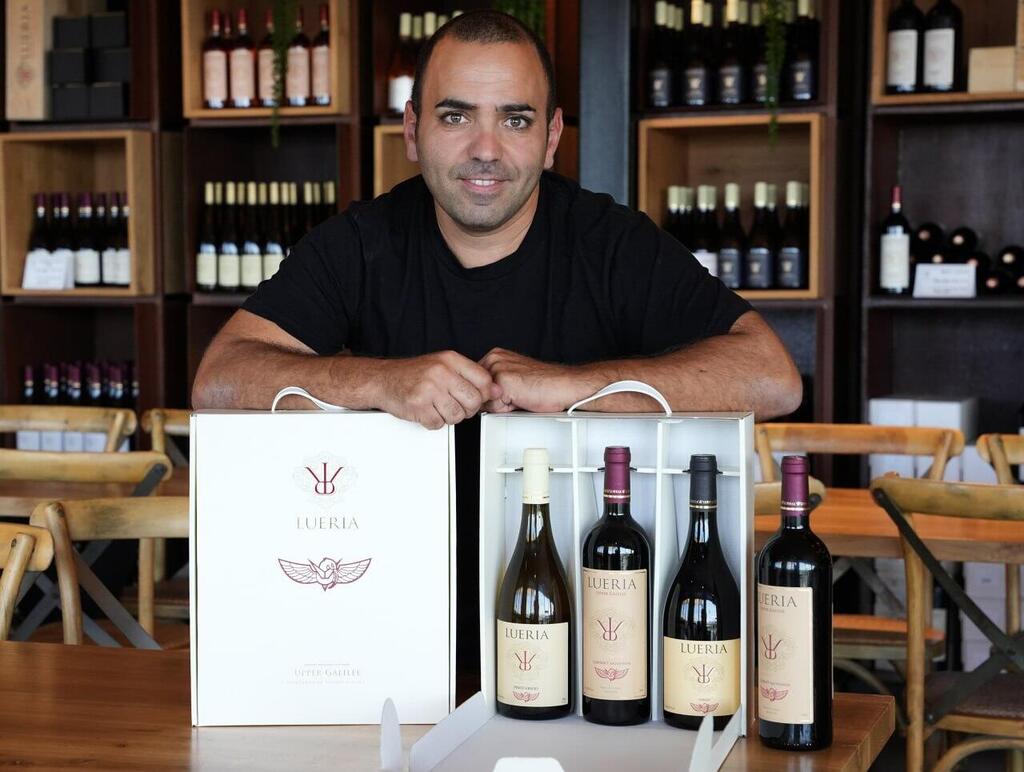Getting your Trinity Audio player ready...
“We feel like soldiers holding down a post, refusing to leave, but not a single person comes through,” says Uri Tyroler, a member of Kibbutz Snir and a prominent figure in the wine scene of Israel’s Galilee, now empty for 11 months.
Tyroler serves as CEO of Kamisa Winery in Dalton Industrial Park, one of 14 wineries located about 3.4 miles (5.5 km) from the Lebanon border. "We keep our restaurant open, paying wages, waiting for visitors," he explains.
"Yehuda Kamisa’s father, the winery owner, emigrated from Tripoli and fought in the War of Independence. My father came from the Bergen-Belsen concentration camp, and giving up is just not an option for us. This year, we planted 100 acres of vineyards in the Golan, with plans for another 150."
Kamisa Winery, like others in Dalton Park, was completed just months before the war. It was built with a 30 million shekel ($7.5 million) investment, and beneath the visitor center and restaurant lies a 12,300-square-foot bombproof wine cellar. Tyroler notes that wine production is on a significant growth path, with increasing sales revenue, but the closed visitor center leaves a dent in earnings.
The wineries in Dalton Industrial Park, near Moshav Dalton in the Merom HaGalil Regional Council, typically supply the Israeli market and export over 4 million bottles annually. Now, with most workers evacuated from nearby communities, only a few continue to operate the wineries.
“We opened to visitors about six months before the war, and in a single day, everything stopped,” says Yehoram Kamisa, a vintner from Safsufa and descendant of a family of veteran grape farmers.
“After the restaurant was shut for a while, we decided to reopen to draw in at least the locals. We used to be booked weeks in advance, but now hardly anyone comes. Every interception overhead silences the area for a week.”
300 meters from compensation
At the end of October last year, the Sayada family was set to inaugurate their new Lueria Winery, a 15 million shekel ($4 million) investment. Yet despite the lack of revenue for their life’s work, like most wineries in the area, the state does not acknowledge their financial struggles.
“Outside, everything’s normal, but for us, the entire segment of tourism, the winery, the event hall we started building—all this income has vanished,” says Gidi Sayada, the winery manager and winemaker.
“The state hasn’t provided any compensation for our side revenue centers beyond wine sales. But for me, closing would be letting Hezbollah win, big time. We stay open here for locals, so they can breathe, enjoy a glass of wine, good cheeses, and pleasant music.”
Salomon (Lalo) Vilensky, CEO of Dalton Industrial Park and a member of Kibbutz Parod in the Upper Galilee, emigrated from Uruguay nearly 50 years ago. His vision was to establish a combined industrial-tourism complex “in the most beautiful part of the country, with the Hula Valley, Mount Hermon, Mount Meron and the hills of Safed,” he says.
“I’m so frustrated seeing it all collapse before my eyes. More than half of the workers here are either evacuated or in reserves. The government decided to provide compensation to factories within three miles of the border, and we’re just over three miles. We’ve been waiting almost a year for field shelters. People working in the Kibbutz Sasa industrial park, for instance, get about 3,000 shekels ($780), but here, 300 meters separates us from any compensation. We’re sitting here, between the air traffic control base and Northern Command, constantly under fire, interceptions above us. We have to beg to be included on the list. They gave us grants for two months, then it all stopped.”
Vilensky adds that even factories running at half capacity and visitor centers shut under lock and key are still required to pay full property tax. Since the war began, he says, only one minister has visited the industrial park—Economy Minister Nir Barkat.
“He came to ask if we needed anything, and that was it. I’m doing my best to keep building this area, to keep it alive, but we have no state here. No one has our back. I spent over 25 years building this place, and I can’t stand to watch it collapse with no future. We built something new and unique here, a project I was always proud of, but now I feel it’s slipping through my fingers. The only ones reaching out are the military, asking us to host soldiers and donate from our factories. We’re helping however we can, but we also need someone to extend a hand back to us.”
The state is making a joke of us
Tyroler notes that roughly 60% of wine revenues at Dalton Park wineries come from direct sales to visitors, allowing them to purchase without middleman fees. Despite the circumstances, he says, Israeli customers remain loyal to Galilee and Golan wines, keeping sales steady, yet vineyard owners expect more displays of solidarity.
“A delegation of 20 officials visited us, arriving by minibus from Jerusalem, to discuss a grant plan covering 50% of equipment costs to expand production," he explains. "But it turns out only factories within 3 kilometers (1.8 miles) of the border qualify. Dalton Industrial Park is excluded. What factories are even on the border? They’re shut down! The state is making a joke of us. Forget the money—we’ll survive. It’s shameful to see things handled this way."
Kamisa adds, "The only benefit we received from the government was extending income tax payments to eight installments instead of six."
Uri Naim, coordinator of the Galilee and Golan Winery Forum and a member of Kibbutz Yiftah now relocated to Ginosar, says they have reached out to some of the largest companies in Israel, offering customized gift packages of local Galilee and Golan products at any budget.
"Israeli companies buying from Turkey and China need to wake up. It’s insulting that Israeli companies source products from abroad rather than supporting local goods, especially now. Only a few companies have stepped up to support the Galilee economy. We expected banks, who know how to provide loans, to show support by purchasing Israeli products too."
Before parting, Gidi Sayada of Lueria Winery makes a request that wine enthusiasts pay a visit to the region’s wineries. “We don’t need people to buy our wine to support us—it sells itself and deserves the praise it gets. What we need is for visitors from central and southern Israel, who are wary of coming here, to visit. People see the region as a dangerous war zone. But I’m raising my kids here; we’re not living in trenches. I understand people are scared, but we live here. We have protection, and that makes life possible."
Get the Ynetnews app on your smartphone:





